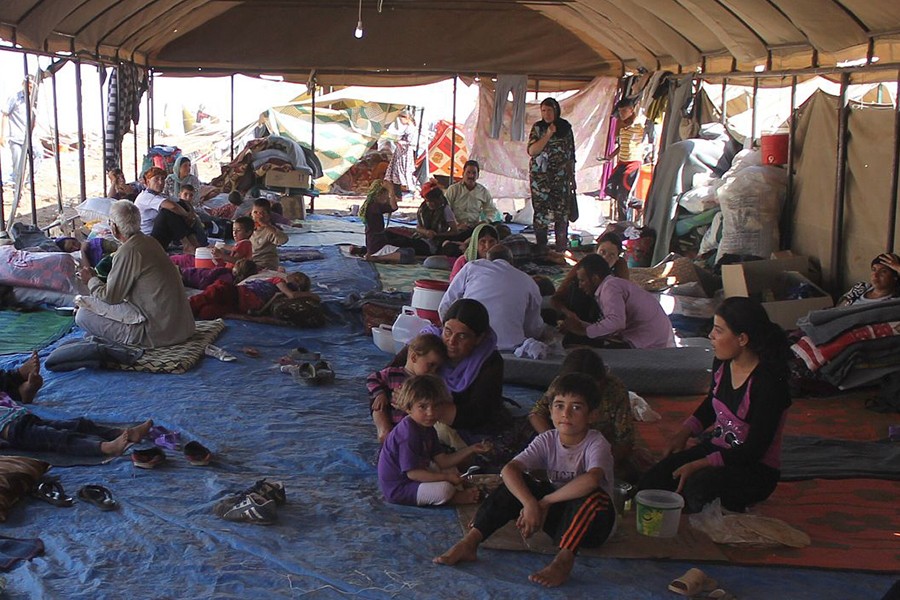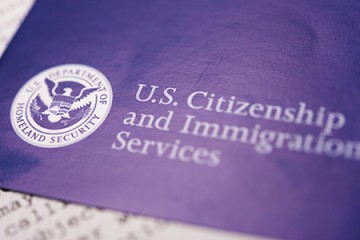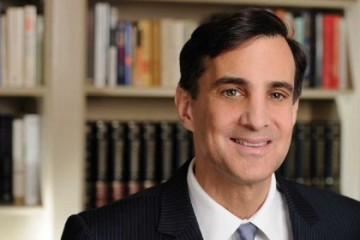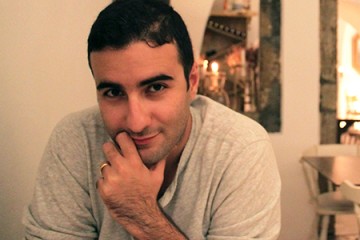Bioethicist Nancy Kass says there are two schools of thought governing the current refugee crisis: a nationalist view "that essentially says 'not my problem,'" and a globalist view that resettling displaced populations is a moral mandate.
"Stated differently," says Kass, "the benefit to others is a matter of life and death. And the sacrifice to us, in the long run, is minimal. In such cases, ethics says we should act."
Kass was among the nine speakers who convened at the Johns Hopkins University Bloomberg School of Public Health on Thursday for a symposium examining the impact of President Donald Trump's recent executive order to block entry into the U.S. by individuals from seven countries, and to suspend for 120 days the U.S. Refugee Admissions Program.
The event centered on the immediate aftermath of the executive order, the public health outcomes of the current refugee crisis, and the legal and ethical ramifications of enforcing the order.
Introductory remarks were provided by Michael J. Klag, dean of the Bloomberg School, who last week joined two dozen of his faculty member colleagues in publishing an open letter addressed to President Trump urging him not to enforce the order.
Len Rubenstein, senior scientist at the Bloomberg School's Center for Public Health and Human Rights, put the executive order into historical and political context. He reminded the audience that despite a centuries-long legacy in the U.S. of discriminatory legislation targeting immigrant and refugee populations, more than 3 million refugees have been resettled in America in the past 30 years.
"We can take the security concerns and the anti-terrorism concerns as real, and yet not make these individuals scapegoats for those problems," he said.
Zaher Sahloul, the former president of the Syrian American Medical Society, described the chaos that unfolded at airports over the weekend following the signing of the order, during which time refugees and visa holders were turned away or detained at airport terminals. He said it was inhumane to deny entry to the 20,000 Syrian refugee families who have completed the vetting process for resettlement within the U.S. and must now restart the process to be resettled in a different country.
Courtland Robinson, Gilbert Burnham, and Shannon Doocy—all faculty members affiliated with the Center for Humanitarian Health—described the vetting process, the conditions refugees are fleeing, and the living conditions within refugee holding camps.
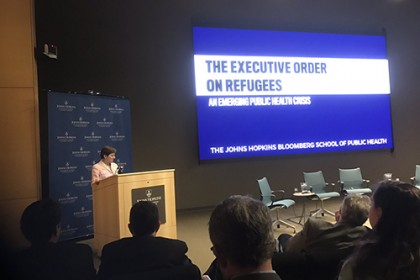
Image caption: Nancy Kass delivers her talk at the Bloomberg School
Image credit: Twitter
Vetting is a public-private endeavor, Robinson said, which already takes an average of 18-24 months and involves health agencies, diplomatic agencies, and national security agencies.
"What does extreme vetting look like?" he asked. "What measures of security will be sufficient to determine if these people who have been very carefully scrutinized already will be eligible to come to the United States?"
Burnham provided an overview of the situation in Iraq, where 10 percent of the population is displaced. A survey of 44 refugee camps showed significant health and sanitation problems: health service providers are few and far between, less than a third of children are in school, and 60 percent of pregnant women experience complications during their pregnancies. Terror groups especially target the Yazidi people, who have cultural and religious traditions distinct from the rest of the country. Those Yazidis who haven't fled from their territories have largely been killed or sold into slavery.
Doocy turned her attention to disproportionate cost of the Syrian refugee crisis on neighboring countries like Lebanon, Jordan, and Turkey.
"Very few [refugees] will actually make it to third-country resettlement, and the mass majority of those who are affected by conflict will remain in a difficult situation," she said.
During a question and answer session, Rubenstein urged Americans to examine the data surrounding the refugee crisis.
"Of the 800,000 refugees admitted to the United States in the last 15 or 20 years, three or four have been accused or alleged to have been involved in some activity involving terrorism. Three or four out of 800,000. You don't have to take biostats to know that that's a pretty low percentage," he said. "The risk is beyond low—it's practically nonexistent."
Kass, who is the deputy director for public health at the Johns Hopkins Berman Institute of Bioethics, suggested that it was the moral obligation of health professionals and bioethicists to speak out against the refugee ban.
"This is a context, if there ever was one, where health and human rights are obviously, inextricably joined," she said. She continued, quoting the Polish sociologist Zygmunt Bauman: "Humanity is in crisis, and there is no exit from that crisis other than the solidarity of humans."
Other speakers at the event included Joshua Sharfstein, associate dean for public health practice and training at the Bloomberg School and inaugural director of the Bloomberg American Health Initiative, and David Rocah from the American Civil Liberties Union of Maryland.
Posted in Health, Politics+Society
Tagged immigration, refugee crisis




